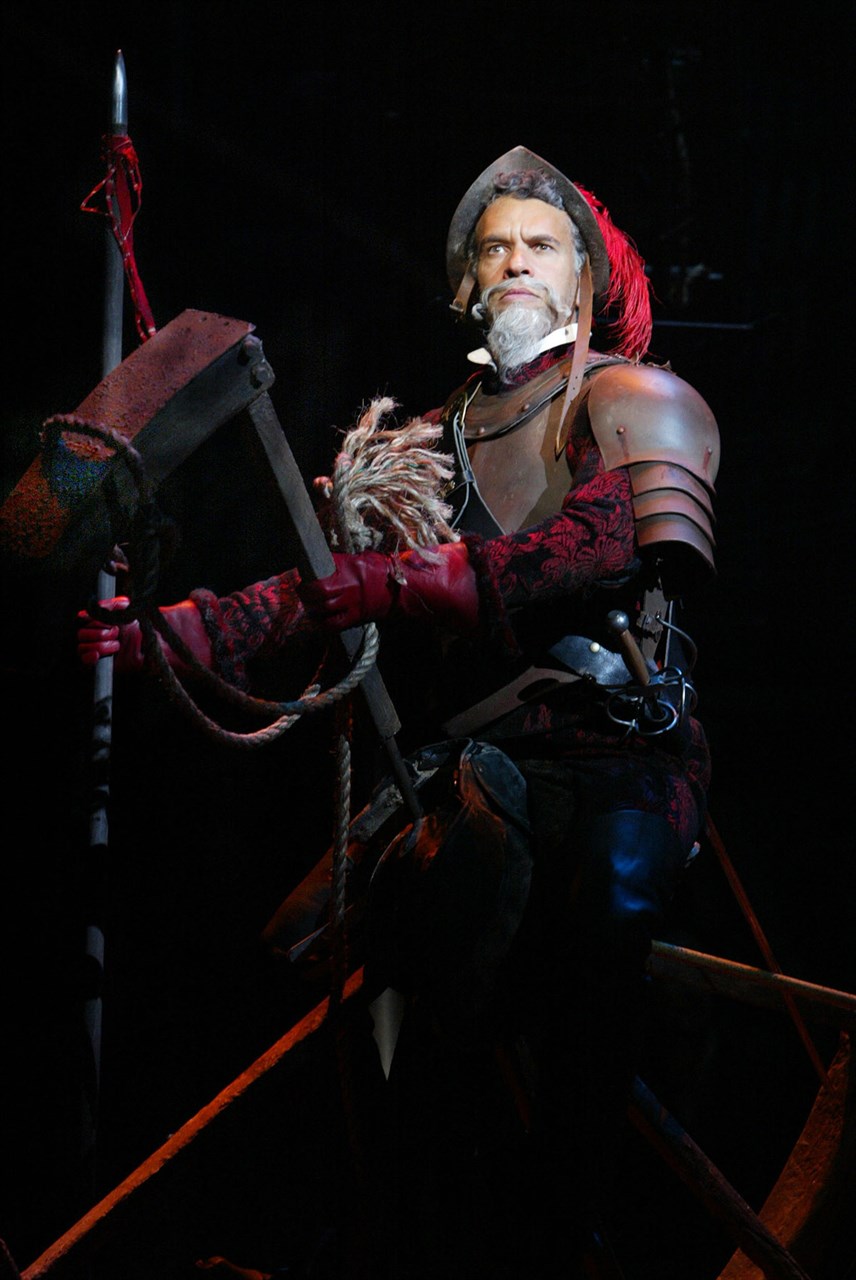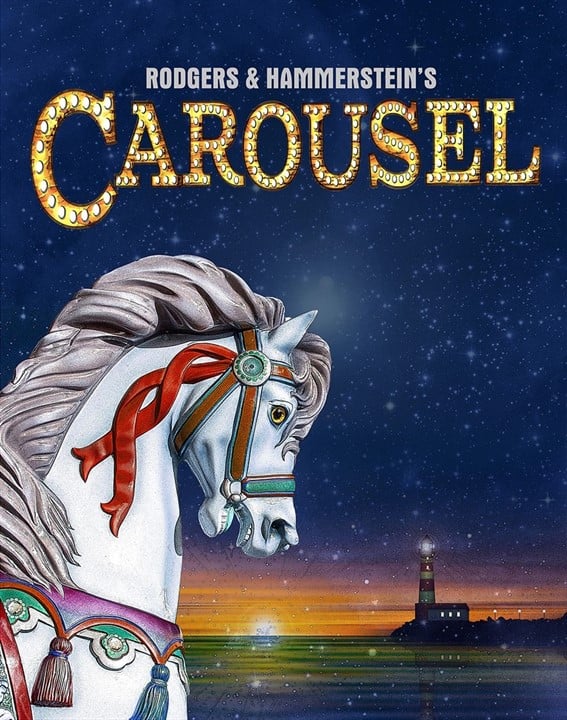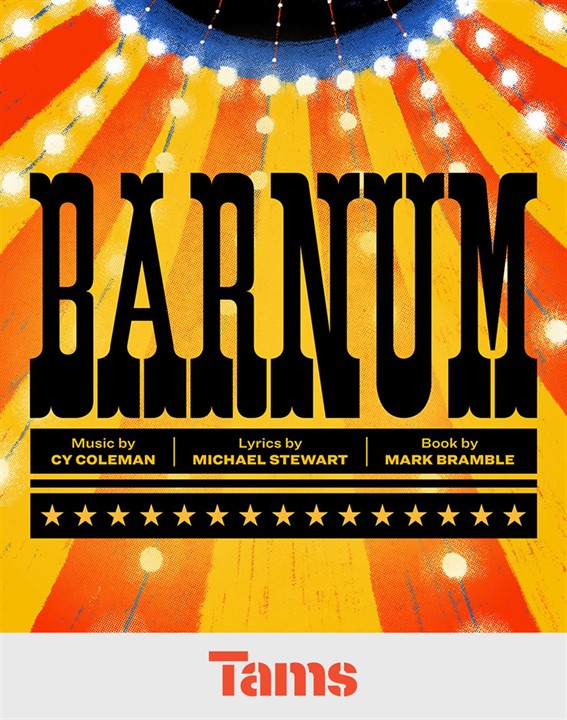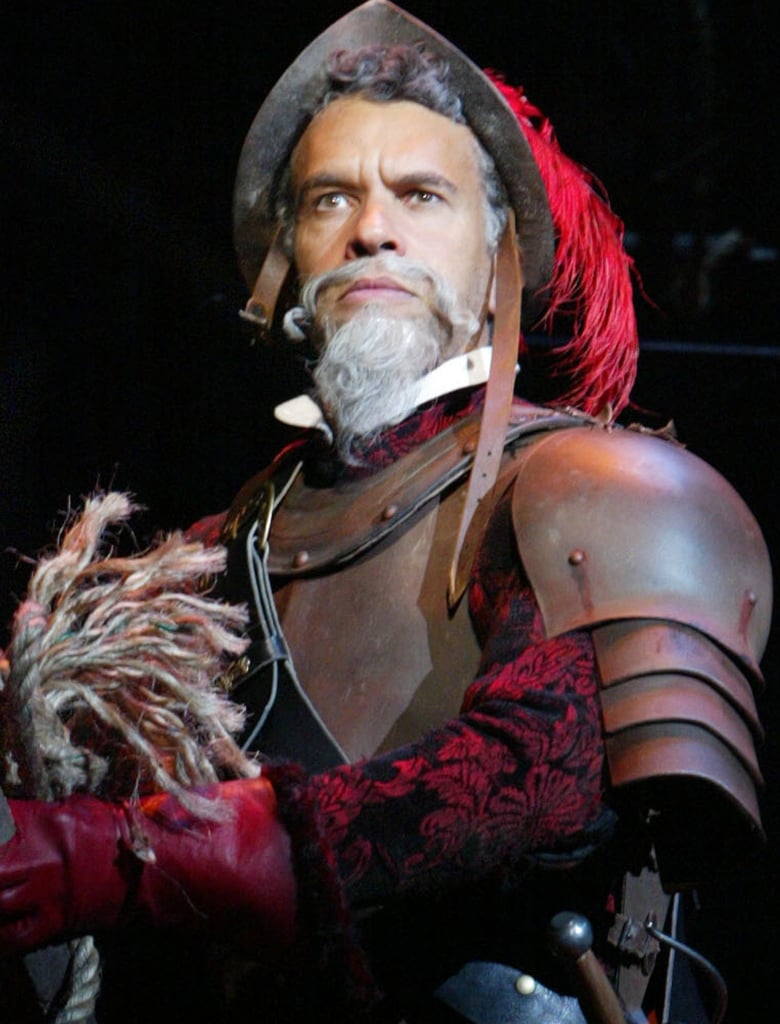
A TAMS-WITMARK TITLE
Man of La Mancha
Full-Length Musical, Dramatic Comedy / 5w, 6m plus ensemble
Written by Dale Wasserman
Music by Mitch Leigh
Lyrics by Joe Darion
Original Production Staged by Albert Marre / Originally Produced by Albert W. Selden and Hal James
Image: 2002 Broadway Production (Joan Marcus)
-
Cast Size
5w, 6m plus ensemble -
Duration
More than 120 minutes (2 hours) -
Subgenre
Adaptation (Literature), Period, Docudrama/History -
Target Audience
Appropriate for All Audiences
Accolades
Winner! Five 1966 Tony Awards, including Best Musical and Composer/Lyricist
Nominee: Three 2003 Tony Awards, including Best Revival of a Musical
Nominee: Two 2003 Drama Desk Awards, including Outstanding Revival of a Musical
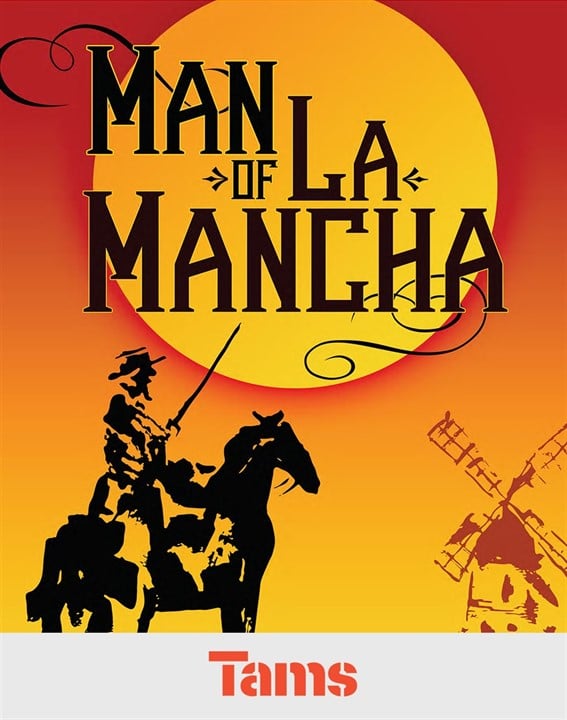
Details
Summary
Man of La Mancha is one of the world’s most popular musicals. Inspired by Miguel de Cervantes’ seventeenth-century masterwork Don Quixote and set during the Spanish Inquisition, the original 1965 production won five Tony Awards, including Best Musical. Cervantes is in prison awaiting trial during the Spanish Inquisition. He and his fellow prisoners perform a play-within-a-play, telling the story of the elderly Alonso Quijana, who renames himself "Don Quixote" and goes on a quest to right all wrongs in the world. The rousing, Spanish-inflected score includes the classic numbers “The Impossible Dream,” “I, Don Quixote,” “Dulcinea,” “I Really Like Him” and “Little Bird.”
Professional Artwork Available for Your Production of Man of La Mancha!
Concord Theatricals has collaborated with Subplot Studio to create high-quality artwork that complies with your license. Promoting your show has never been easier! Learn more at Subplot Studio.
History
Man of La Mancha, which features a book by Dale Wasserman, music by Mitch Leigh and lyrics by Joe Darion, is adapted from Wasserman’s 1959 teleplay I, Don Quixote. This in turn was inspired by Miguel de Cervantes and his 17th-century classic, Don Quixote.
The show made its world premiere in 1965 at the Goodspeed Opera House in East Haddam, Connecticut, and later that year made its New York premiere at the ANTA Washington Square Theatre. Man of La Mancha won five Tony Awards in 1966, garnering the trophies for Best Musical, Best Composer and Lyricist, Best Actor in a Musical for Richard Kiley, Best Scenic Design for Howard Bay and Best Direction of a Musical for Albert Marre.
Man of La Mancha moved to the Martin Beck Theatre on March 20, 1968, followed by the Eden Theatre on 3 March 1971 and for the last month of its Broadway run in May of that year, the Mark Hellinger Theatre. The original production ran in New York for 2,328 performances and the show has subsequently been revived four times, most recently in a 2002 incarnation led by Brian Stokes Mitchell.
In London, Man of La Mancha, starring Keith Michell, first bowed in the West End on 24 April 1968 at the Piccadilly Theatre, where it played 253 performances. The 1972 film adaptation was headlined by Peter O’Toole, James Coco and Sophia Loren.
Man of La Mancha has played around the world, with productions in Dutch, French, German, Hebrew, Irish, Japanese, Korean, Icelandic, Gujarati, Uzbek, Bulgarian, Hungarian, Serbian, Slovenian, Swahili, Finnish, Ukrainian and nine different Spanish dialects of the Spanish language. Cast recordings are available in multiple languages.
Cast Attributes
- Time Period 17th Century
- Features Period Costumes
- Additional Features Not Applicable
- Duration More than 120 minutes (2 hours)
- Cautions
- Mild Adult Themes
Media
“Man of La Mancha has a heart that sings and a spirit that soars.” – Rolling Stone
“A metaphysical smasheroo.” – Life
“Man of La Mancha is a triumph of creative imagination and stagecraft.” – New York Post
“An exquisite musical play—the finest and most original work in our musical theatre since Fiddler on the Roof opened. It moves enthrallingly from an imaginative beginning to a heart-wrenching end.” – John Chapman, New York Daily News
“To reach the unreachable star—what a soaring aspiration for an indestructible dreamer, and what a glorious summation for a bold and beautiful new musical... Thus it goes all evening—realism aligned with romanticism, and each sharpened by the other.” – Norman Nadel, World-Telegram & Sun
Videos
Man of La Mancha - Barrington Stage
Man of La Mancha - Westport Playhouse
"The Impossible Dream" 2003 Tony Awards
Richard Kiley - 1972 Tony Awards
Photos

Image: 2002 Broadway Production (Joan Marcus)
Music
Music Samples
- Musical Style Classic Broadway
- Dance Requirements Minimal
- Vocal DemandsModerate
- Orchestra Size Large
- Chorus Size Medium
Licensing & Materials
- Licensing fees and rental materials quoted upon application.




